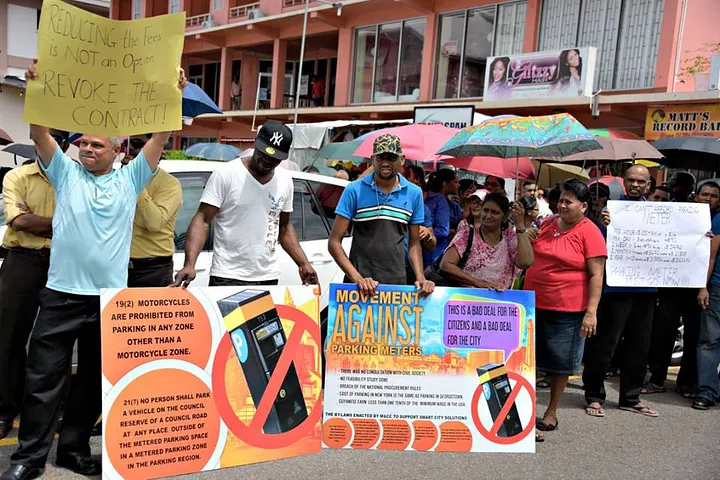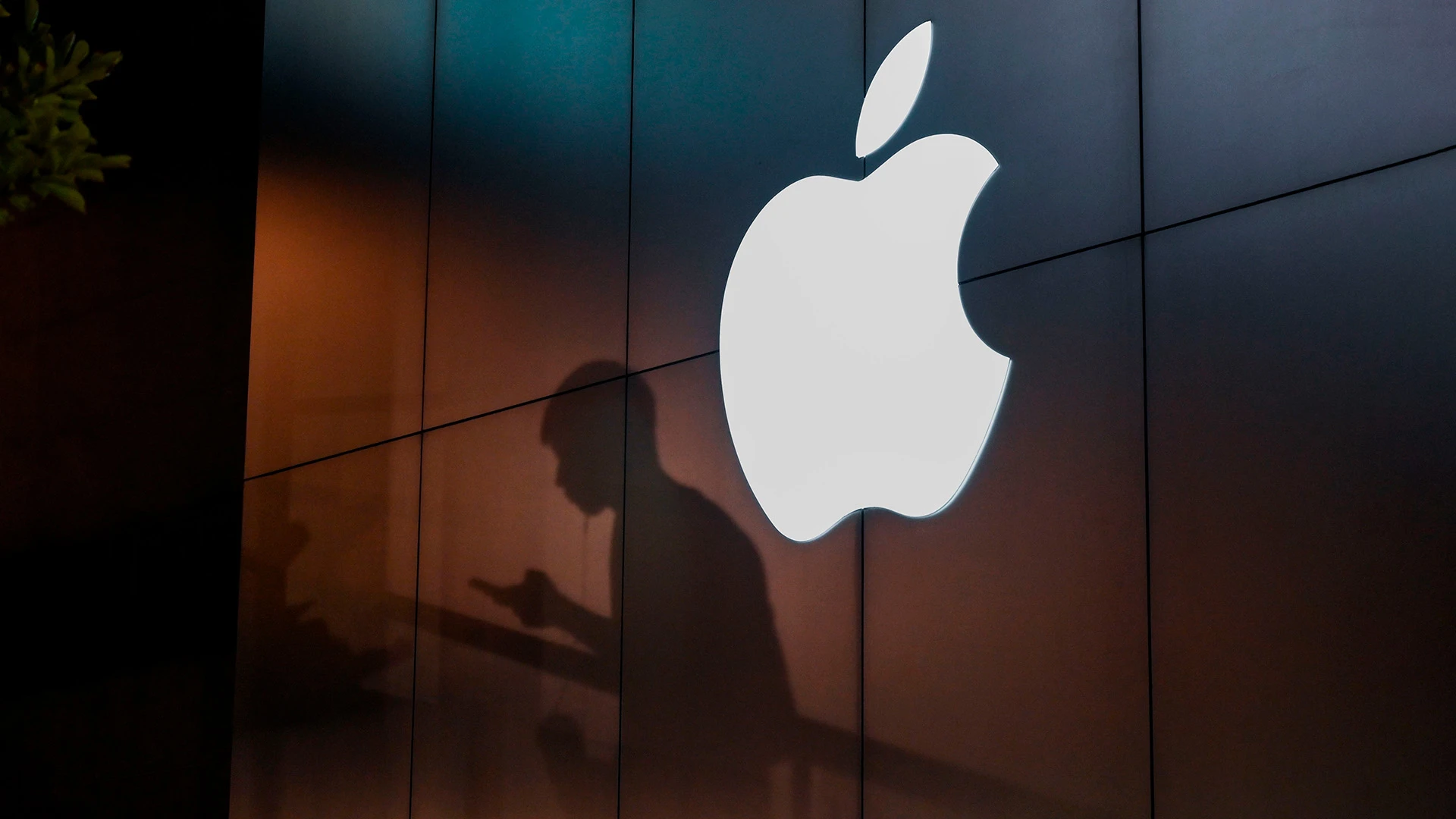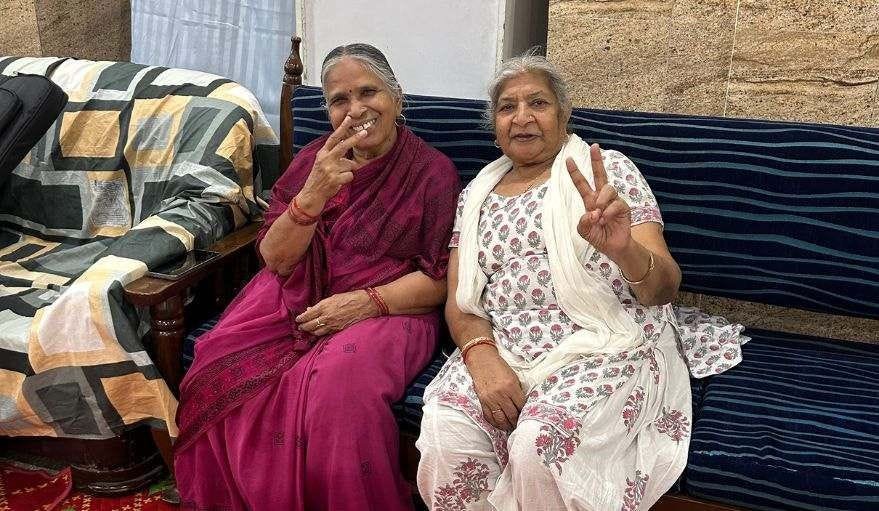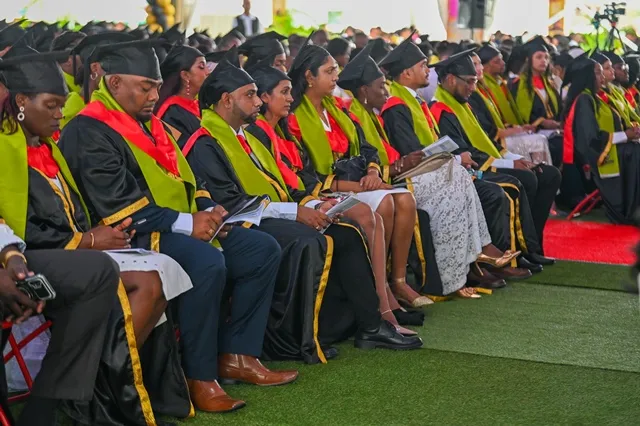Introduction
In Guyana’s journey toward prosperity, one obstacle threatens to undermine progress if left unchecked: corruption. Perceptions of graft and misuse of public funds have long plagued Guyanese governance, breeding public cynicism and impeding development. But today, there is a concerted effort by the government and civil society to turn the tide – to reform institutions, enforce accountability, and build a culture of transparency. In this in-depth piece, we examine Guyana’s battle against corruption. We will look at recent trends in corruption indicators, the steps being taken by the People’s Progressive Party/Civic (PPP/C) administration to strengthen integrity systems (from procurement reform to digital transparency), and the challenges that remain. While it’s a tough fight, there are signs of improvement and a narrative of renewal. Can Guyana shed its historical baggage of patronage and nepotism to emerge as a cleaner, more efficient state? The stakes are high: successful anti-corruption reforms would ensure that the benefits of the oil boom and other developments truly reach the people, and bolster international confidence in Guyana’s governance.
A Legacy to Overcome
Guyana’s history with corruption is intertwined with its political and ethnic complexities. For decades, politics was zero-sum and often accompanied by allegations of officials enriching themselves or favoritism in public spending. Institutions meant to check abuse, such as the Integrity Commission or procurement boards, were sometimes ineffective or dormant. In Transparency International’s Corruption Perceptions Index (CPI), Guyana traditionally scored poorly. Even in recent years, the country’s CPI ranking has fluctuated: it improved to 85th out of 180 countries in 2022, but then slipped to 92nd by 2024 with a score of 39/100.This score indicates that **perceptions of public sector corruption remain significant】. A 2024 Transparency Intl report pointed to “state capture by economic and political elites” as a continuing challenge in Guyana
However, it’s worth noting that Guyana has made strides from an even worse past – a decade ago it ranked near 120th. The upward trend until recently suggests reforms have had some impact, though clearly more work lies ahead. High-profile allegations, such as those in a 2022 Vice News documentary accusing a sitting official of accepting bribes (which he denied), keep the issue in the public eye and underscore the need for robust systems that transcend any one administration.

Reforms Under the PPP/C Government
Since returning to office in August 2020, the PPP/C government led by President Irfaan Ali and Vice President Bharrat Jagdeo has professed a “zero-tolerance stance on corruption”. They inherited some anti-corruption bodies established by the previous coalition government (2015-2020), such as the State Assets Recovery Agency (SARA) and a Procurement Commission, albeit those had mixed effectiveness. Rather than continue SARA (which was plagued by legal issues), the PPP/C opted for strengthening mainstream institutions: the Auditor General’s office, the Public Procurement Commission (PPC), and law enforcement.
One early move was reactivating the long-dormant Integrity Commission – tasked with collecting asset declarations from public officials and monitoring conflicts of interest. By 2021, ministers and MPs were again submitting financial disclosures annually to this commission, after years of lapse. While enforcement is still a challenge (penalties for false declarations are being considered), having the mechanism in place is fundamental.
The cornerstone of current efforts is arguably procurement reform and transparency. Public procurement (government contracts for goods, services, works) has historically been a flashpoint for corruption, given big contracts were sometimes awarded to politically connected firms or with kickbacks. VP Bharrat Jagdeo has been vocal in insisting on clean procurement practices. He convened all Permanent Secretaries (the top civil servants in ministries) and warned that any breach of the Procurement Act or collusion would not be tolerated. In 2023, the administration implemented a policy where all contract awards by the National Procurement and Tender Administration Board (NPTAB) are published online and in newspapers. Jagdeo pointed out that the former government had “failed to publish a single contract award”, whereas now the public can see who won every contract and for how much. This transparency is crucial as it allows the media and civil society to scrutinize patterns and flag any irregularities.
Further, the government has embraced e-procurement for certain projects – moving the bids and tendering process to electronic platforms to reduce human discretion and opportunities for interference. Training programs for procurement officers on ethics and the law have also been ramped up; Jagdeo personally urged officials to familiarize themselves thoroughly with the Procurement Act, essentially telling them ignorance would be no excuse.
Another area of improvement is budget transparency and oversight. The annual budget process is more open now, with detailed estimates published and accessible. The Public Accounts Committee (PAC) of Parliament resumed regular meetings after delays and has been examining past spending. The PAC, chaired by an opposition member as per tradition, has been empowered to call accounting officers to answer for discrepancies in Auditor General reports. The Ali administration has allowed this process to work without undue hindrance, which builds a norm of accountability.
At the executive level, President Ali established a Special Investigations Unit within the Guyana Police Force focusing on financial crimes and corruption. This unit has initiated probes into some historical cases (like alleged mismanagement under a previous public sector housing program) and actively works with the Audit Office when fraud is suspected. In 2022–2023, there were several charges brought against mid-level public servants for embezzlement and bribery, signaling that wrongdoing is being pursued. A notable case saw officers of the Customs agency charged in a fuel import scam – a sign that even revenue agencies are under scrutiny for internal corruption.
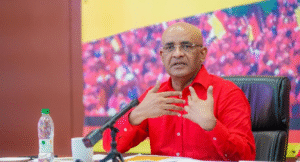
Technology and Open Governance
Guyana is also betting on digital solutions to cut opportunities for petty corruption. Many Guyanese have faced the frustration of bureaucratic red tape, where a small bribe might be solicited to “speed up” a permit or a document. The government’s digitization drive – creating online portals for services like business registration, passport and license renewals, and paying taxes – helps minimize direct contact that can lead to solicitation of bribes. The pandemic accelerated some of this shift; for example, the Deeds Registry introduced an online company registration system in 2021, reducing in-person interactions.
Another tech-based reform is the transparency of information. The Freedom of Information Act (FOIA) exists in Guyana, but historically people had trouble accessing information due to bureaucratic hurdles. The current administration has pledged to improve FOIA responsiveness. Meanwhile, they pro-actively disclose more data: from the aforementioned contract publications to monthly oil revenue deposits (Bank of Guyana now releases NRF oil fund reports quarterly), and even the beneficial ownership registry for mining and petroleum companies. Guyana joined the Extractive Industries Transparency Initiative (EITI) in 2017, and though it briefly fell out of compliance for late reporting, it published its latest EITI report in 2023 covering oil, gas, and mining revenue flows. These are critical for citizens to follow the money from natural resources and spot any irregularities.
The judiciary has begun publishing written decisions online, which improves transparency in the legal process, including corruption cases. And in a move symbolic of openness, the government televised the 2023 and 2024 budget debates and committee hearings, allowing the public to witness arguments over expenditures and policies live.
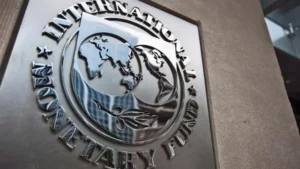
High-Level Commitment and Culture Change
A significant factor in anti-corruption efforts is the tone from the top. President Irfaan Ali and his ministers routinely speak about accountability and have invited foreign assessments. In 2023, Guyana underwent an IMF Fiscal Transparency Evaluation and scored relatively well, with the IMF noting “notable improvements in fiscal reporting and public investment management”. The IMF 2025 Article IV report commended steps to enhance transparency in oil revenue management and general public finance.
Vice President Jagdeo, himself a former President, is a polarizing figure but has positioned himself as a champion of anti-corruption in this term. At a major energy conference in 2024, he emphatically stated “deliberate efforts to conceal corruption or engage in unethical activities will not be tolerated”. He cited the comprehensive system of checks that has been instituted, and didn’t mince words about punishing wrongdoing – even warning government engineers against accepting bribes or doing shoddy work. This kind of public admonition is important in signaling to bureaucrats that there will be consequences for malfeasance.
Moreover, Jagdeo openly contrasted their approach with the previous government’s, accusing them of neglecting transparency measures (like publishing contracts). While that has a partisan overtone, it also means the administration has put its credibility on the line with these commitments – making it more likely they’ll follow through or face public wrath. Indeed, civil society and the press are watching closely. The Guyana Press Association (GPA) and Transparency Institute of Guyana (the local TI chapter) frequently call out perceived issues. For example, when the GPA raised concerns about media intimidation and the government’s commitment to transparency, the administration issued a detailed statement rebutting any threats to press freedom and reaffirming its support for an “open and free media environment”. In that statement, they emphatically said claims of curtailing press freedom are “baseless…Guyana’s journalists operate without state interference”, while simultaneously cautioning against misinformation. This episode shows the government feels the need to defend its record on openness, which itself is a sign of responsiveness to watchdogs.
However, skepticism remains among some citizens. Anti-corruption culture change doesn’t happen overnight. The public wants to see not just statements but actual convictions of corrupt officials, recovery of stolen assets, and consistent equal treatment. On that front, progress has been limited – there haven’t been any major convictions of high-profile figures in recent times. Some critics accuse the political class of protecting its own; for instance, charges against a couple of ex-ministers from the previous regime were dropped or stalled, fueling claims of political deals. The government counters that the cases lacked evidence or were politicized to begin with.
An area that needs bolstering is whistleblower protection. Guyana does not yet have a strong whistleblower law, though one has been drafted. Encouraging insiders to report corruption safely would greatly aid enforcement. The civil service also needs merit-based hiring and promotions to break patronage networks – the Ali administration has hired technocrats in key posts (e.g. experienced financial experts to head the Gas-to-Energy taskforce, etc.), but political appointments still exist. Over time, continued professionalization and insulation of the public sector from political pressures will be crucial.
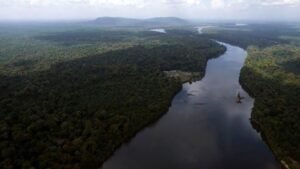
International and Regional Cooperation
Guyana’s anti-corruption fight isn’t happening in a vacuum. The country engages with international partners for support and best practices. It is part of the OAS Mechanism against Corruption (MESICIC) and has implemented many of that body’s recommendations (like adopting a code of conduct for public officials, which is now in place). In 2021, Guyana signed on to the Inter-American Convention Against Corruption and updated some laws accordingly.
Regionally, CARICOM has initiatives on governance and Guyana has been participating. The Caribbean Financial Action Task Force (CFATF) evaluations in 2023 showed Guyana made significant progress in combating money laundering – an important related aspect to corruption. Anti-money laundering (AML) systems prevent officials or criminals from easily hiding illicit gains. Guyana was once “grey-listed” but as of 2022, it is largely compliant with FATF standards. The government established a special court for financial crimes and in 2023 convicted a former gold board employee on money laundering charges linked to a fraud scheme – a notable win in the AML sphere.
The UK, Canada, EU and US have been supporting local transparency efforts too. In 2022, the US provided training to Guyana’s prosecutors on corruption cases, and the UK funded a program to help digitize the Deeds and Commercial registries. These partnerships enhance capacity. Notably, in May 2023, ambassadors of the US, UK, Canada, and EU issued a joint statement on World Press Freedom Day emphasizing the importance of free media and freedom of expression in Guyana’s democracy. This kind of gentle diplomatic pressure underscores to the government that the world expects transparency and accountability, especially now that Guyana is more prominent globally due to oil.
Impact and Way Forward
While it’s too soon to declare victory, there are tangible signs of improvement in governance that ordinary Guyanese can notice. For example, citizens can now go online and see which company was awarded the contract to fix their village road – a level of information that empowers them to monitor if the work is done properly. The fact that 18,180 women received house lot titles since 2020 (46% of total allotted), as announced by the Housing Ministry, not only highlights gender empowerment but also that the housing allocation process – often maligned in the past – is being conducted at scale with (so far) limited accusations of unfairness. Delivering services efficiently and widely leaves less room for corrupt brokering.
Additionally, the anecdotal “street sentiment” appears cautiously optimistic. Many Guyanese credit the current government for getting projects done and responding to issues faster, and some link that to less funds being siphoned off. For instance, during the 2022 floods in Region 2, flood relief payments were delivered to farmers in an organized manner; aside from minor complaints, there was no major scandal of misappropriation, which might have been expected in the old days.
That said, persistent areas of concern include: nepotism in some public appointments, political party financing (there’s virtually no regulation or transparency in campaign financing yet), and the sheer temptation that the enormous oil revenue pot presents. The government has tried to mitigate the latter by the NRF safeguards, but ensuring those funds are spent free of corruption is an ongoing vigilance game. Watchdogs will need to keep pressing for things like competitive bidding on all oil-funded projects and publication of cost-benefit analyses.
Looking ahead, Guyana might benefit from further institutional reforms such as: passing a robust Whistleblower Protection Act, updating the archaic Integrity Commission Act to give it teeth (e.g. empowering it to verify asset declarations and investigate anomalies), and possibly establishing specialized anti-corruption courts to expedite cases. Another idea floated by civil society is to have parliamentary hearings on major government contracts (above a huge threshold) to foster debate and transparency before final approval – though this could slow things, it adds oversight.
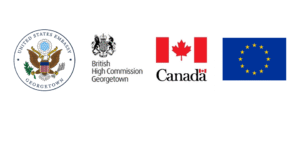
Crucially, building a public culture that condemns corruption is the long game. The education system now includes civic education that highlights the value of honesty and rule of law. Media and NGOs are freer than ever to expose wrongdoing thanks to social media and digital tools, though they occasionally encounter pushback. For example, when opposition or critics cry foul on something, government communicators sometimes dismiss it as “politically motivated.” Striking a healthy balance where criticisms are fairly evaluated rather than instinctively rebuffed will be important. In this light, the administration’s sharp response to the GPA (press association) statement in 2025 – accusing the GPA leadership of an anti-PPP agenda – revealed some defensive reflexes that could be tempered to avoid perceptions of intolerance of criticism. However, it also reaffirmed the government’s view that “press freedoms are not under threat”, which the media and public will certainly hold them to.
In conclusion, Guyana’s anti-corruption drive is a work in progress with promising momentum. As the country advances, continued vigilance and reforms can gradually cement a governance environment where transparency and meritocracy thrive. For a nation now commanding international attention, proving that it can manage its newfound wealth with integrity will not only benefit its citizens but also elevate Guyana’s standing on the world stage. There’s a saying often repeated by leaders: “We must ensure every dollar goes towards the people’s development, not into someone’s pocket.” If Guyana stays on the path it’s carving – through stronger institutions, public oversight, and leadership example – that saying can move from rhetoric to lived reality. A cleaner Guyana is within reach, and with it, a more just and prosperous society.
